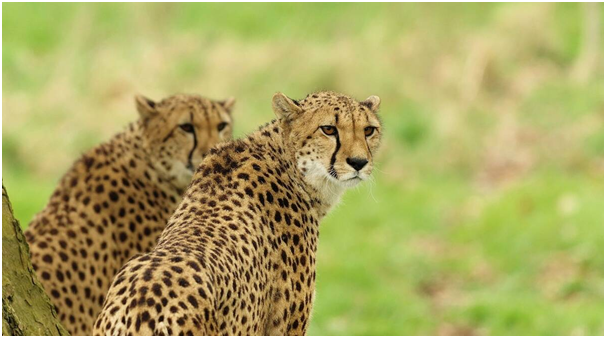

Context
India and Namibia signed a memorandum of understanding (MoU) for reintroduction of cheetahs into the historical range in India.
About
Key-points
- The MoU aims to facilitate Cheetah conservation in both countries by way of exchange of expertise, sharing of good practices in the field of wildlife conservation, use of technology and sustainable management of biodiversity.
- According to the pact, India will also train Namibian candidates in wildlife management courses at the Wildlife Institute of India (WII).
- The Environment Ministry in collaboration with the WII and National Tiger Conservation Authorityhas identified Kuno National Park in Madhya Pradesh for the reintroduction of cheetah, where the first eight cheetahs are expected to be translocated from Africa.
- The first batch of cheetahs comprising four male and as many female cheetahswill arrive from Namibia in August.
- While the current carrying capacity for Kuno National Park is a maximum of 21 cheetahs,once restored the larger landscape can hold about 36 cheetahs.
- The carrying capacity can be further enhanced by including the remaining part of the Kuno Wildlife Division (1,280 sq km) through prey restoration.
- The Ministry will also launch extensive awareness campaigns among the local communities and villages, encouraging them to be stakeholders in the project.
- Cheetah managers and biologists from Africa will train Indian conservationists and forest officers.
- The main goal of the Cheetah reintroduction project in India is to establish viable cheetah metapopulation in India that allows the cheetah to perform its functional role as a top predator and provides space for the expansion of the cheetah within its historical range thereby contributing to its global conservation efforts.
Cheetah in India
- The cheetah is the only large carnivore to have gone extinct in India, primarily due to hunting and habitat loss.
- Maharaja Ramanuj Pratap Singh Deo of Korea, Madhya Pradesh, is widely believed to have killed the last three recorded cheetahs in India in
- In 1952, the Indian government officially declared the Cheetah extinct in the country.

Demand for Reintroduction of Cheetah
- The State Wildlife Board of Andhra Pradesh was the first to suggest the policy in 1955, on an experimental basis in two districts of the state.
- In the 1970s, the Department of Environment formally requested Iran, which had 300 Asiatic cheetahs at the time, for some cheetahs.
- However, the Shah of Iran was deposed before any deal could be reached.
- Attempts to bring cheetahs to India were revived once more in 2009, and the Wildlife Trust of India conducted a meeting to discuss the feasibility of cheetah reintroduction.
- Several sites were chosen, of which Kuno-Palpur National Park was seen as the most suitable.
- This was because the area had a large habitat area available and significant investments had already been made to displace the villagers inhabiting the site.


